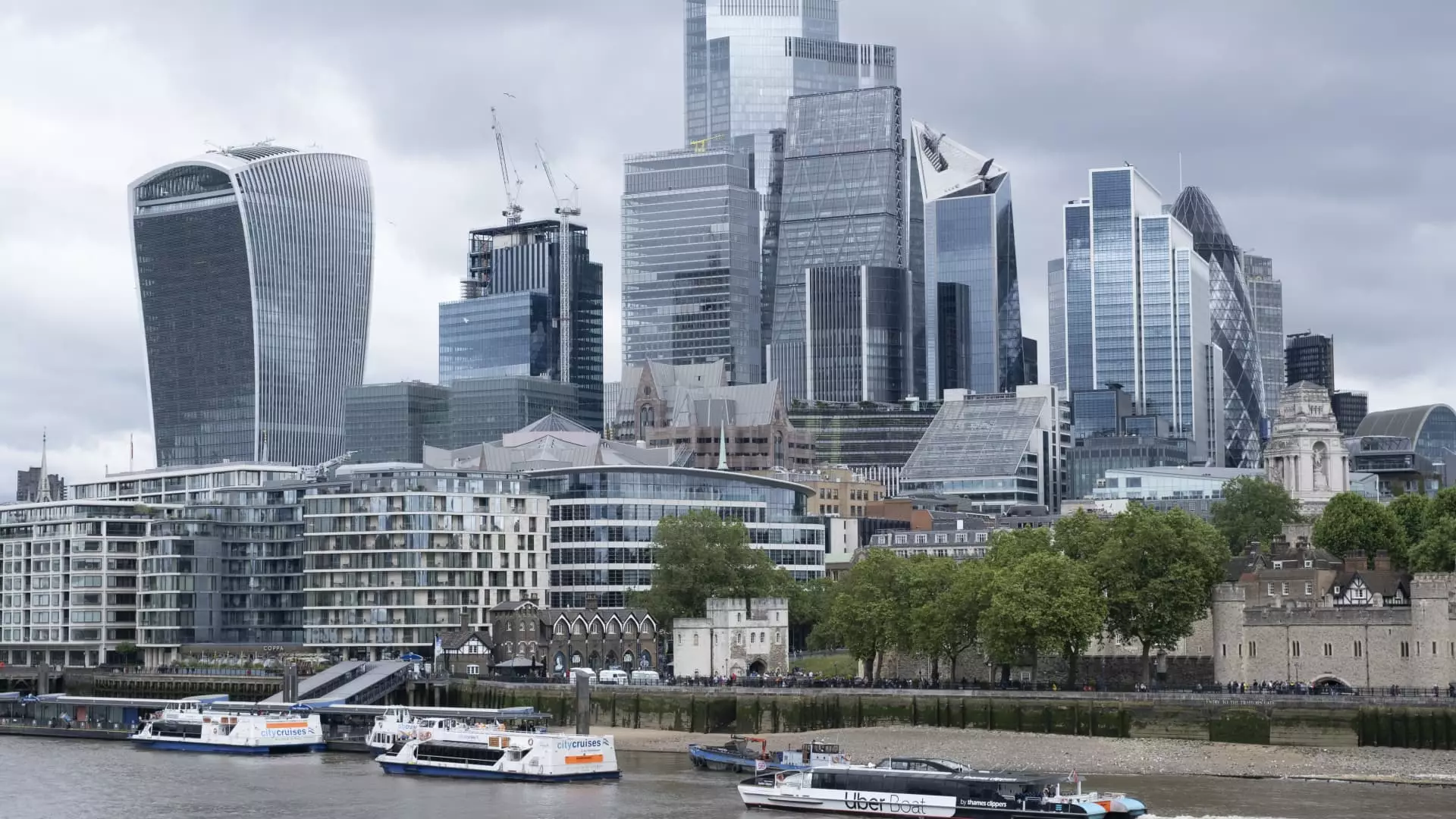In a recent announcement, the International Monetary Fund (IMF) upgraded its growth forecast for the United Kingdom, reflecting a more optimistic outlook due to anticipated decreases in inflation and interest rates. The IMF now projects an economic growth rate of 1.1% for 2024, a notable increase from the previous estimate of 0.7% in July. This revised forecast seeks to account for the positive impact of easing inflationary pressures and their expected influence on consumer behavior. For 2025, the IMF maintains its projection of a 1.5% growth rate, suggesting a continued recovery trajectory for the UK economy.
These developments are particularly significant in light of the current inflation rate, which has plummeted to 1.7% in September 2023, down dramatically from 11.1% recorded in October 2022. The drop in inflation, combined with subdued wage growth, suggests that the Bank of England could initiate more aggressive interest rate cuts than previously contemplated. Most economists now anticipate that the central bank may reduce its key interest rate from 5.25% at the year’s onset down to approximately 4.5% by the end of 2024. These changes are expected to stimulate domestic demand, laying a foundation for more robust economic growth.
Despite these promising forecasts, the reality of the UK economy’s performance thus far has been somewhat lackluster. Reports indicate that growth was limited to just 0.2% in August, following a stagnant performance in June and July. Such tepid growth figures raise concerns about the recovery’s pace and sustainability. Nevertheless, the IMF’s optimistic outlook arrives at a crucial juncture as the UK braces itself for budgetary decisions from the Labour Party, which is set to unveil its first budget in over a decade this month.
Prime Minister Keir Starmer is preparing the public for “tough” financial choices aimed at addressing a reported £22 billion ($28.5 billion) financing shortfall—a figure that has become a point of contention among political parties, particularly with his Conservative predecessors disputing its accuracy. Starmer has expressed commitment to curtailing net borrowing but simultaneously recognizes the necessity for broader tax reforms, even while ruling out significant tax hikes on income or corporate gains.
The looming uncertainty associated with the budget has contributed to wavering consumer confidence throughout recent months. However, a recent report from S&P Global indicates a slight rebound in consumer sentiment, suggesting that households are becoming more optimistic about their financial situations and are increasingly willing to make significant purchases. This shift in consumer psychology could inject much-needed vitality into the economy as expectations align with the forecasted easing of inflation.
UK’s Finance Minister Rachel Reeves, who took office in July, acknowledged the IMF’s improved predictions while emphasizing that more work is needed to achieve the ambitious goals set forth by the Labour government. She has previously stated that the Labour Party aims to secure the highest sustained economic growth among G7 nations, with growth-centric policies at the forefront of their agenda.
The IMF’s revised estimates for the UK stand in contrast to its downgrading of the euro zone’s growth outlook, which has been adjusted to 0.8% for 2024 from an earlier 0.9%. A significant component of this downgrade stems from anticipated stagnation within Germany, the region’s largest economy. Analysts cite numerous challenges facing Germany, including fierce global competition in the automotive and manufacturing sectors, alongside rising energy prices and broader macroeconomic uncertainties adversely affecting industrial output.
Internationally, the IMF provides a varied picture for other advanced economies, forecasting a noticeable expansion of 2.8% for the United States, 1.3% for Canada, and a mere 0.3% for Japan. The latter region continues to grapple with sluggish demand amid high inflation rates, further influencing its subdued growth outlook.
While the IMF’s recent upgrade to the UK’s economic growth forecast signifies a positive shift, the road to recovery is fraught with challenges. The interplay between inflation, interest rates, consumer sentiment, and political budgets will likely shape the trajectory of the UK economy in the near future. As key economic indicators show improvement, the focus now shifts to effective governance and strategic policymaking to harness this potential growth and ensure a resilient and robust economic environment moving forward. The coming months will be pivotal as stakeholders navigate the intricacies of fiscal policy and its impacts on both the business climate and everyday citizens.


Leave a Reply